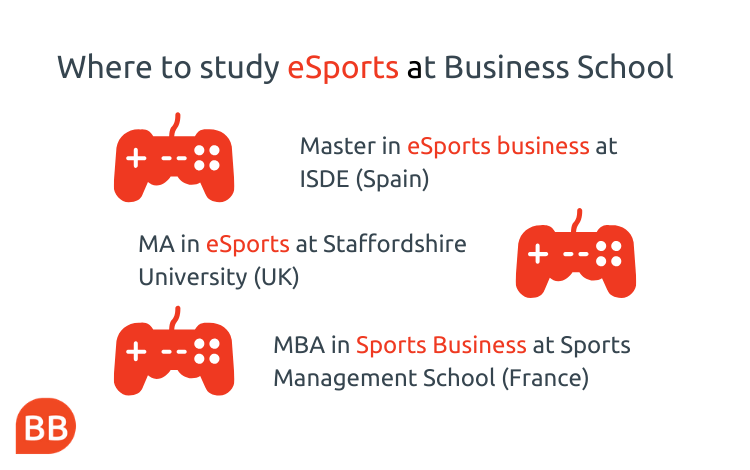In the summer of 2019, a 16 year old took home $3 million, after competing in front of 23,000 live spectators, and 2.3 million viewers online.
The prize—which eclipses what Roger Federer won at Wimbledon just weeks before—was for winning the Fortnite World Cup, a major eSports event.
eSports and gaming, once the domain of kids in basements playing World of Warcraft, is fast becoming one of the biggest entertainment industries in the world, hitting a global value of $138 billion in 2018. From Amazon paying just shy of a $1 billion for eSports streaming platform Twitch, to selling out 20,000-seater stadiums, eSports has come a long way.
1. eSports has an audience that traditional sports struggle to engage
Traditional sports are facing a crisis of an ageing population.
The average viewer of the NFL is 50 years old. Baseball fares even worse, with an average age of 57. There’s no denying that their viewership is fast maturing and declining.
Conversely, the average age of Twitch users is 21 years old. eSports has managed to corner the youth market in ways that traditional sports have consistently struggled.
“eSports has the enviable opportunity of being at the forefront of shifting demographics, with a rising tide of a new generation with a different viewpoint and perspective of what esports represents,” explains Michigan Ross MBA graduate John Knauss.
John works at Riot Games, developer of eSports game League of Legends. Riot was bought in 2011 by Chinese tech giant Tencent for $232 million, and is now valued at around $21 billion.
This increasing popularity is no doubt down to a fundamental change in the way that this generation views eSports, and eSports contestants, as on a par with players in the NFL and the Premier League.
2. eSports is becoming increasingly professional
The early days of eSports teams weren't so glamorous.
“You’d have a bunch of kids living in the same apartment, with a coach who’d cook for them,” remembers Patrick Wittke, head of Berlin-based eSports Consultants.
It’s quite a different image now. Teams have sports psychologists, professional chefs, and physiotherapists. They’ll have a separate gaming office, with a chief gaming officer, and teams of analysts and managers to run the commercial aspect of the team.
“It’s becoming more and more professional,” Patrick adds, whose consultancy offers strategic and business advice to esports teams looking to grow and expand.
eSports events are one example of this development. Competitions will fill stadiums—like the 56,000-seater Birdsnest Stadium in Beijing—they’ll have pre- and post-match shows, they’ll have commentary and analysis.
The MBA program at Sports Management School, training leaders for sports business, offers students the chance to put on an eSports event—including everything from coordinating broadcasters to securing sponsorship.
Professionalization is attracting the attention of major players in the business landscape, with investment totalling $4.5 billion in 2018.
“We’re seeing massive businesses investing into the space and considering it worthy of their time and expertise,” insists Slobodan Gluvic, director of operations and strategy at eSports media company Gamurs, and an MBA graduate from the Australian Graduate School of Management (AGSM).
Sourcing venture capital, understanding digital marketing, and spotting emerging trends are all exciting routes for MBAs like Slobodan to get involved in the market.

3. eSports is disrupting traditional sports
From one perspective, eSports is taking many of its cues from traditional sports; but from another perspective, it’s beginning to disrupt and inform the way that traditional sports are doing things.
One of the biggest examples of this is online streaming. Traditionally, sports like soccer sold exclusive broadcasting rights packages to broadcasters. In the English Premier League, many games are not broadcasted, in order to increase the value of the available stock.
eSports, through platforms like Twitch, is totally on demand and free-to-stream. With 15 million daily users on Twitch, traditional sports are starting to take note.
The NFL has started broadcasting games on Twitch, while Amazon will be streaming its first Premier League games this December.
“People are looking at eSports and seeing it as what they should be doing in other sports,” stresses Luke Cotton, COO of eSports talent agency Code Red Sports.
It’s also pulling in established sports teams into competitions. NBA teams like the Golden State Warriors has their own NBA2K eSports team; Manchester City has its own FIFA team.
“It’s highly disruptive in that it’s taking away eyeballs from traditional sports,” Slobodan insists. “It’s a matter of time before certain executives need to rethink their strategy to appeal to newer generations.”
READ MORE: 5 Exciting MBA Jobs In eSports
4. There’s a huge opportunity to shape and influence the industry
So what does this mean for professionals and MBA graduates who want to get involved in the industry?
“It’s a new area of growth where one didn’t exist before,” John from Riot insists, “A sports industry emerging out of the technology space.”
It’s still in its fledgling stages, John explains, in a “sweet spot” between a startup and a Fortune 500 space, where business leaders and managers have ample room to explore, shape, and influence the industry.
David Jackson, London Business School MBA graduate and head of strategy at the National University Esports League (NUEL), was drawn to eSports for this very reason.
He points to NUEL founder Josh Williams, frustrated at the lack of infrastructure to compete in eSports at university, who founded the league as a result. It now has its own streaming platform, supported by Twitch.
“People are still trying to figure out what the industry should look like,” David explains, “This is really interesting for MBA graduates, who can play a role in helping to shape it. You don’t get this in sports that are more mature.”
5. eSports is expected to keep growing—if it can successfully monetize
Shaping the industry may ultimately require transforming it.
Many sceptics refer to an ‘eSports bubble’ that is destined to pop. Most people inside the industry, however, are far more optimistic about its future. They do all recognize one thing—the need to monetize the industry.
The level of investment is currently not matching the level of return. The revenue-to-viewer ratio in esports is 14 times smaller than that of the NFL.
The landscape resembles a “wild west”, David suggests, where events, leagues, teams, and developers are all separate, and often pulling in different directions. A FIFA eSports team like Paris Saint-Germain acts more as a marketing arm for the soccer club; a dedicated esports team, however, needs to make money.
“We need to move towards increasing organization and management of the league, in a way that can maximise growth collectively,” David underlines.
With the eSports audience expected to increase by 100 million in the next three years, overtaking even the NBA, this next step could be make or break. It’s the opportunity, and challenge, of MBA graduates to come up with novel, dynamic ways to successfully capitalize on this exciting growth.
BB Insights explores the latest research and trends from the business school classroom, drawing on the expertise of world-leading professors to inspire and inform current and future leaders
RECAPTHA :
8e
df
1d
1e




 1
1 




Comments.